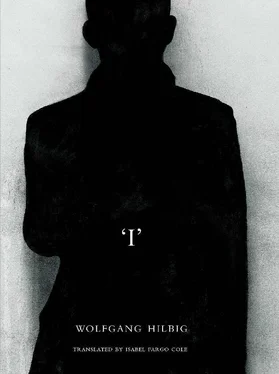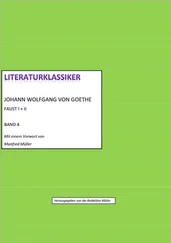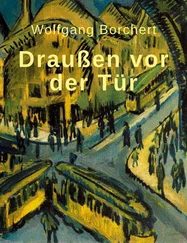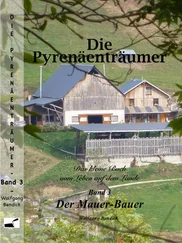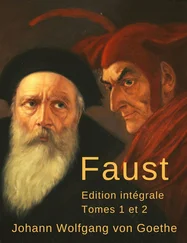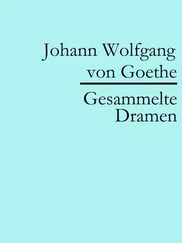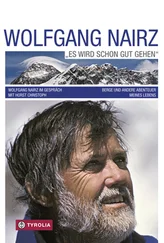What’s that supposed to mean? asked C.
If you go get yourself caught, the boss said to me, if you run straight into the arms of the guys from Sect. 20, there’s nothing I can do for you. But I don’t want him to, I’m fine with them having me down as a probationer.
I get it, said C., you want to stay a goddamn grocery-store snoop. You want to stay in the reserves, you don’t want to be woken up, you want to sleep on in peace. Don’t you know that those are the exact people who all get strung up sooner or later? Or dropped, you could say! The little guys always get hanged. .
Of course I know that, the lanky guy grinned. But things can’t be that bad yet. If it were that bad, Sect. 20 would know about it, and then we’d find it out too somehow, wouldn’t we. . the boss would hear it from you, for example, and I’d hear it from the boss, just like you’d know about it from your boss. And then my boss wouldn’t have said: Steer clear of the guys from Sect. 20. Your old acquaintance the poet, for instance. Or I’ll drop you like a hot potato, I’ll be done with you. And I thought to myself, Done with me, that wouldn’t be so bad. . and now you’ve gone and caught me! You are Sect. 20, aren’t you?
It had long turned dark and cool, C. had risen from the bench, standing as though paralysed, his hands buried in the pockets of his parka. The lanky grocery-store snoop crouched on the bench, bent forward slightly, tilted face gazing up at him. . Careful, thought C., the man’s a snake!
How could he show the lanky guy he’d understood him? If C. so much as mentioned his visitor in a report, the boss in A. would be unable to ignore the fact that his ‘UnCol Probationer’ had deconspired. . and that was just the opportunity this person saw, he wanted to be ‘dropped’. But if C. didn’t mention him in his reports, the same thing could happen to him: then he, C., could be seen as a deconspirative collaborator. . no simple matter for him, since he was far past being a mere ‘probationer’. . for him it might even be treason. — He couldn’t even let himself think the word, he’d walked into a neat trap!
All right! said C. You’re going to head home now, for starters. And you won’t snoop around my landlady again. You’re going to leave now, right away, got it!
Sure I got it, said the grocery-store snoop.
We’re both going to get on the next S-Bahn train, you’ll sit in the front on the right, I’ll sit in the back on the left. And you’ll take it to the Central Station, I’ll get out at Warschauer Strasse. And we won’t have seen each other, you won’t turn and look at me!
I won’t turn and look at you.
And you’ll take the very first train to Leipzig, from Leipzig on you can do as you like, got it?
I got the picture, said the grocery-store snoop.
And one of us will come soon and visit your boss. . probably me, said C. And now we’ll go our separate ways to the train. But first I want to know your code name!
Shorty, said the grocery-store snoop.
***
(He recalled the ride on the S-Bahn train and it seemed to him that at the time he had compared the dimly lit interior of the car with one of the vaulted basement tunnels he often roamed. That just as he now stared forward down this passage. . fixedly, for even in the basements the light bulbs sometimes flickered as though massive convulsions had been unleashed in the streets above. . he had stared down the car that catapulted through the night amid its own howling noise. At an ever-increasing velocity. . and as through nocturnal landscapes of ruins: he knew them from his childhood.
These were districts that for stretches looked utterly bombed out, broken by parks and allotment gardens, then by rows of new housing developments, black — yellow in a darkness thinned by the glow of the streets, sand-coloured sooty walls of porous concrete like diseased skin, then darkness again and forest-like parks. . to the left, now and then, the rows of floodlights on the Wall: the Antifascist Protective Barrier which shut out or in the neofascists and prevented their reunification. Allotment gardens and parks behind the Wall as well, now and then a complex of apartment towers flashed, walls of lacunae-filled light, like the inextricably complex consoles of illuminated control panels — the empire of signs in West Berlin. And at last the train crossed the Spree, the reflections of the car’s windows dazzling on the broad, nearly black river.
Down here in the basement passages the howl of the train had slipped far into the distance; it had manifested itself — but only for him — in the nameless stone weight of the work of art that was Berlin, and had become as imaginarily substantial as the oxygen in the atmosphere, against which the jitter of a refrigerator sensed beyond the concrete wall at his back remained as unreal as glass breaking in the distance. — He had spent a long time down here reflecting, and remembering, interrupting himself many a time and climbing back up to the light again — did day still break up in Berlin? — and at last he had recalled those industrial ruins. It was possible indeed to vanish there. .
When he had discovered the basement passages beneath the houses of Berlin and wandered through them for the first time, he unquestionably recalled that expanse at the edge of A.—A. had been the site of large munitions factories, separated from the city only by the railway line to Leipzig; on the town side there were even larger factory buildings that had once been part of the same complex, still intact and now used to produce consumer goods; but the bulk of those factories had been located outside town and had been destroyed by wartime air raids. — Even as a boy W. had roamed the ruins every day and knew them like the back of his hand; the expanse of ruins was the favourite playground of the children from the edge of town. And even as a child he had discovered beneath the bizarre building remnants — it was decades before the ruins could be cleared away — systems of underground passageways with a myriad of interconnections, evidently designed both as escape routes and cable tunnels connecting all the separate parts of production facilities that had been crucial to the war effort. There were actually still certain tunnels that extended under the railway line all the way to the basements of the factories in town. . in the other direction they led out under the forest; walking through the forest, you might suddenly stumble in the underbrush upon mysterious, mushroom-shaped steel-plate caps a yard in diameter, hidden under deep layers of old leaves: this was where the air shafts descended to the tunnel system three or four yards below. And of course the children told the story that the underground tunnels led all the way to the shafts of the abandoned mines that arced around the city like a chain of sooty, battered fortresses.
And W. recalled his apprenticeship at the training workshop, a bit uphill from the expanse of ruins. At that time he had already begun writing poems and short stories. . and one day the workshop was investigated for written materials, he couldn’t remember what exactly: books or texts copied out from books, magazines or journals, some sort of illicit printed matter was circulating, there were confiscations and searches. And he had tied his notebooks and papers in a bundle and hidden them in one of the underground corridors.
At the time it had seemed like a game to him; he was simply uncomfortable at the thought of his secret writings spread out before the eyes of the training staff, and the passageways beneath the ruins were safe. — At a much later point in time he had divulged this hiding place to his drinking buddy Harry; it happened one night at a pub in A., when both of them — they were the only two left standing after a weekend on which they’d barely slept and outdid each other drinking — ended up sitting in a back room until long after midnight. There Harry had suddenly broken down crying, in part from alcohol-induced enervation, in part from genuine despair, saying something about a series of cheque forgeries he’d been charged with — W. asked himself how such things were even possible — and that he already knew when he’d be arrested; tomorrow, Monday, a ‘friend’ from the police station had tipped him off, they’d be coming for him. But apparently the evidence was still shaky, they might have to let him go again, temporarily, if he could manage to hide something before then. Harry didn’t say what he had to hide, he spoke of some sort of papers; W. offered to take them home with him. Harry refused; they’d been seen together. . and he had to hide the things that very night. . in a pinch he might even have to hide himself. — Why? W. asked, finding the whole thing implausible and incomprehensible. — His girlfriend Cindy was getting out of prison some day the coming week, he had to see her to clear up their future relationship. .
Читать дальше
